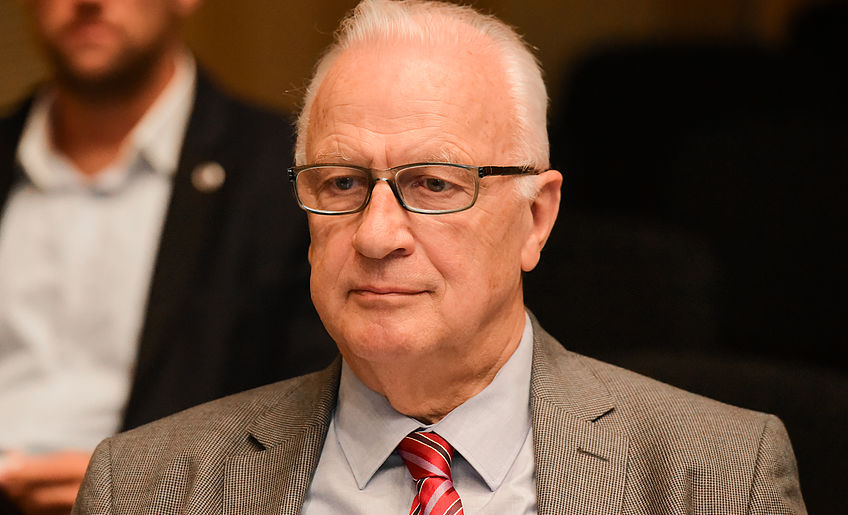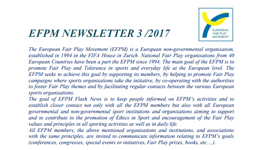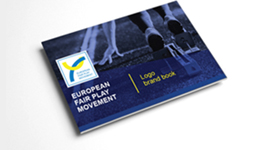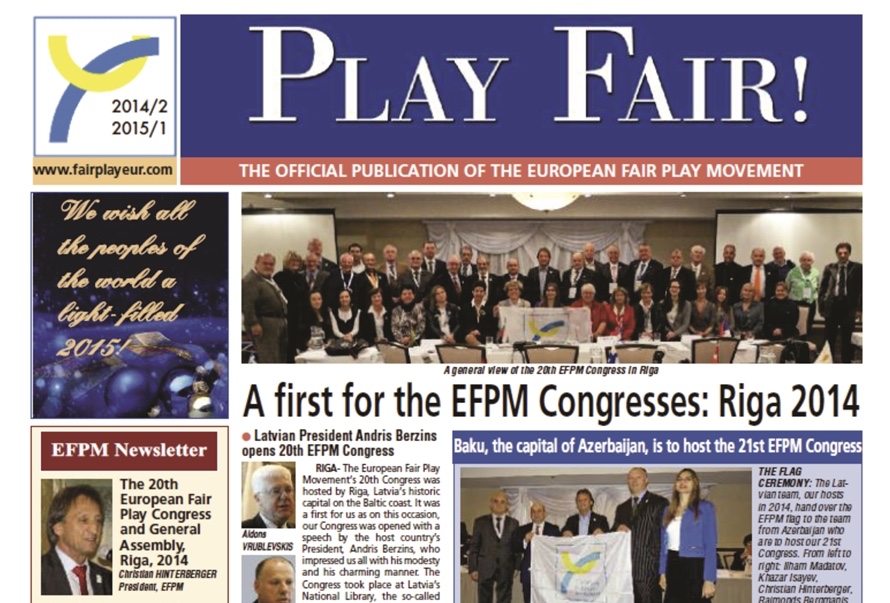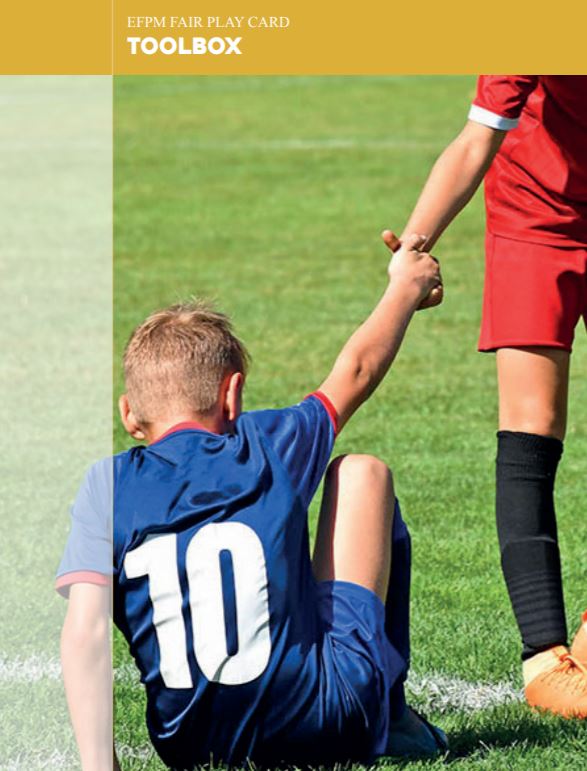“From Zurich to Budapest – Memories and Considerations”
Mr. President, dear Christian Hinterberger,
dear Members of the EFPM Executive Committee,
dear National Delegates,
dear Guests, Ladies and Gentlemen,
To speak here on the occasion of the 25th anniversary of the European Fair Play Movement is certainly a privilege for which I am grateful, but it is also a challenge. A presentation of the historical development of the EFPM with its most important dates and events would not only involve a huge amount of work, but it would also be forbidden for this very reason, because I, from the very first minute, from our establishment at the FIFA House in Zurich on May 27, 1994 until a few years ago, have shared responsibility as General Secretary and Vice-President. Therefore, I would rather look to the future and express a few observations, which should form the basis of a subsequent discussion.
Many of those gathered here today have long been passionately committed to promoting the concept of fair play and preserving the values of sport at national and European level. Our chronicle lists 25 congresses from Zurich to Budapest, of which voluminous reports bear witness to, school and association projects, fair play actions, art competitions, honors of exemplary athletes and many other activities, with which we often have to make a stand against the so-called "Zeitgeist". There were moments of satisfaction and disappointment, a spirit of optimism and frustration. But just like the legendary Sisyphus, we kept pushing the stone up the mountain whenever it rolled down. An evaluation and an analysis of success and failure must be carried out in each country by those responsible, because the EFPM itself offers only a platform for the exchange of ideas and experiences, for cooperation and communication. Please allow a few remarks on the current situation of teaching the values in and through sport, which others may see quite differently in terms of choice and priority. And I look forward to hearing your opinion in the ensuing discussion, be it approval or criticism.
First of all, allow a sobering realisation: The deplorable emergences in sport, especially in international elite sports, are unfortunately the same today as they were 25 years ago: doping and corruption, aggression and violence, match fixing and sexual abuse, racism and discrimination on ethnic, political, religious and other grounds. The reasons lie in the increasing exploitation of sport for non-sporting purposes, in growing professionalization and commercialisation as well as in increased competition due to globalisation of all areas of life. In almost all sports that are measured, the natural performance limits have been reached and these can only be exceeded by manipulation. The instrumentalisation of sport through politics, which many considered to be overcome at the end of the Cold War, is on the rise again. Olympic Games and World Cups are almost exclusively awarded to authoritarian states, which organize them without regard to social obligations to their citizens with unimaginable effort. We observe the absurd practice of forcing athletes from certain countries to lose on government orders in order to avoid competing in the next round against athletes from disagreeable countries. And if they resist, they are punished. While more women than men will likely compete at next year’s Olympic Games in Tokyo for the first time in history, women in a number of Islamic countries are still not allowed to engage in competitive sports or watch sports competitions at all. This is also a gross violation of equal opportunities and woman's dignity.
The fight against these phenomena takes place in two ways: through prevention and through sanctions, i.e. punishment. And here is the dilemma that everyone who works for a clean sport, including the EFPM, is faced with. Prevention is a matter of education, especially at school, and in public campaigns. Sanctions are a matter solely of national and international sports federations. Prevention and punishment are therefore not in the same hands. We can only point to the good example of performing non-profit work, in order to identify good role models. But if those responsible in sports associations do not act consistently, all our efforts are in vain.
Although public pressure on elite athletes has increased in recent years and has led to a noticeable decline in doping in some countries, the major breakthrough has not yet materialised. I have come to the conclusion that our late colleague Vladimir Rodichenko was on the right path when, a few years ago, he demanded that doping be recorded as fraud in the criminal code and prosecuted by state authorities. A number of countries, including Germany and Austria, have meanwhile done so.
In addition to my earlier comments, allow me to put forward a number of conclusions for discussion:
- The EFPM needs to intensify its earlier efforts to win over the European sports federations, especially the Olympic federations, and convince them that the teaching of values is in their best interest. Without this cooperation, our call will go unheard. We need to make it clear to those responsible in the federations that the public acceptance of elite sport, which has dramatically declined in recent years in Europe, can only be regained through the preservation of the values of sport and credible action.
- We definitely need closer cooperation with universities, and not just with the Institutes for Sports Science. We need more proven educators, sociologists, psychologists and political scientists in our ranks. Our Scientific Advisory Committee must play a stronger central role in the future. We have to initiate our own academic projects, as recently suggested by Steve Town. Projects on current problems with clear questions, the results of which are of interest to the sports associations and have been implemented. For funding, we need to approach national foundations and the European Union.
- Those who want to achieve changes in attitude and behavior patterns in society nowadays, absolutely need to develop a media strategy: support from the press, radio and television, especially the new "social media", is important. In addition to the Scientific Advisory Committee, we need a short-term Media Commission or Working Group dealing with digitalisation issues.
- An important partner at a national level is the governments and other public authorities. In a number of countries, the national Fair Play clubs are already well supported by the respective Ministries of Sport and Culture, but not yet in others. This is where the commitment of national representatives is needed.
- We are not a Fair Play Association but a Fair Play Movement. That's what our statutes say. We deliberately chose this term upon establishment. The principle of fair play and the values it covers go far beyond sport and apply to most other sectors of society. There is no isolated sports ethic. Therefore, we should also seek closer cooperation with organizations and institutions that spread and promote humane values outside of the sport. These include religious communities, trade unions, human rights and environmental organizations. Shouldn’t we invite representatives from these organizations to our next congress?
- When we look at earlier and current activities of our national members, it is striking that in almost all countries, pupils/children were and are the preferred target audience for events, projects and campaigns. Behind this is the legitimate and understandable conviction and experience that behaviours practiced in early childhood are particularly formative and sustainable for the socialisation of young people. This is undeniable, but we must also understand that young people on the way to competitive sports at the age of 14 to 18 years must make decisions whose implications they cannot even guess at primary school age. For these adolescents, who are in a difficult stage of development, we need to provide ethical guidelines and guidance, which cannot be achieved without the collaboration of academic experts.
- Of course, each athlete is ultimately solely responsible for his or her behavior and decisions, but the "socialising agents" around him also play an important role and depend on the success of the athlete in many cases: officials, coaches, doctors, managers, legal advisers, physiotherapists , players' agents, journalists and sponsors and other “stakeholders”. They all have economic interests and often try to enforce them regardless of the health or dignity of the athlete.
- Another target group that is very neglected are the adults who, as parents, increasingly keep their children away from competitive sports establishments or vote as citizens against major sporting events in their city or country. They need to be better informed at a national level about the values of sport as part of their duty of care to their children.
- The EFPM must critically follow the current development of sport and react against undesirable developments and questionable tendencies through public statements. Close cooperation with the media is also necessary to reach the different target groups. It may be necessary to take into account conflicts with national or European sports federations.
- Fair play is usually associated in public with football. When talking about a sports foul, 99% of people are likely to notice the kick of a footballer against the opponent's shin. In football, coaches demand and even systematically teach the so-called "tactical foul" as part of a team's strategy, as evidenced by numerous statements I do not wish to go into here. There is also corruption, game manipulation (match-fixing), hooliganism and other phenomena. Realistically assessing our potential, we should pay less attention to football. The financial resources and links to the media that football associations have are so large that we should focus especially on the other "Olympic" sports and grass-root sports. Fair play stands for the totality of values in sport and includes also social justice, sustainability and other values.
07.10.2019

